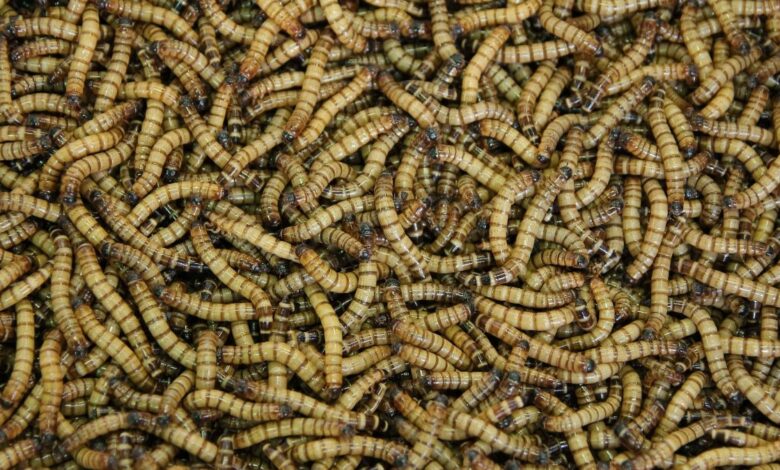Mealworms can eat plastic, but research shows limited impact on the pollution crisis

An experiment conducted by researchers at the University of British Columbia has revealed the limited potential of mealworms in tackling plastic pollution. The study, published in Biology Letters on December 4, estimated that 100 mealworms would take about 138 days, or 4.5 months, to consume a single disposable polypropylene mask. The findings underscore the challenges of relying on insect larvae for large-scale plastic degradation, according to several reports.
Plastic pollution and microplastics: a growing problem
The study focused on microplastics, which are plastic fragments smaller than 5 millimeters that are linked to serious health problems, such as an increased risk of heart attacks and strokes, as suggested by previous studies. Previous experiments had demonstrated the ability of several insect species, including yellow mealworms (Tenebrio molitor) and superworms (Zophobas atratus), to break down different types of plastic. However, most of these studies used powdered or pure forms of plastic, rather than the manufactured items people use every day as reported by researchers.
Tests and observations in the real world
Led by ecologist Dr. Michelle Tseng, the team took a more realistic approach by using disposable masks that contain extra materials from manufacturing processes. To stimulate consumption, the plastic was processed into microbits and mixed with wheat bran. According to Dr Tseng in a statement, the insects happily consumed this mixture, called ‘face mask granola’.
No significant reduction in the insects’ lifespan was observed. However, questions have been raised about the safety of using these larvae as a raw material in agriculture, especially for poultry. Dr. Tseng noted that mealworms that consume large amounts of microplastics may not remain safe for further use in food chains, as reported.
Challenges and future directions
The feasibility of using mealworms for large-scale plastic degradation remains questionable due to slow consumption. During the height of the COVID-19 pandemic, Asia alone reportedly used 2 billion face masks per day, highlighting the impracticality of such a solution. Researchers have suggested that examining the microbial composition of these insects could lead to advances in waste decomposition technologies. Nevertheless, reducing plastic use is highlighted as the most effective approach to managing this environmental crisis.




